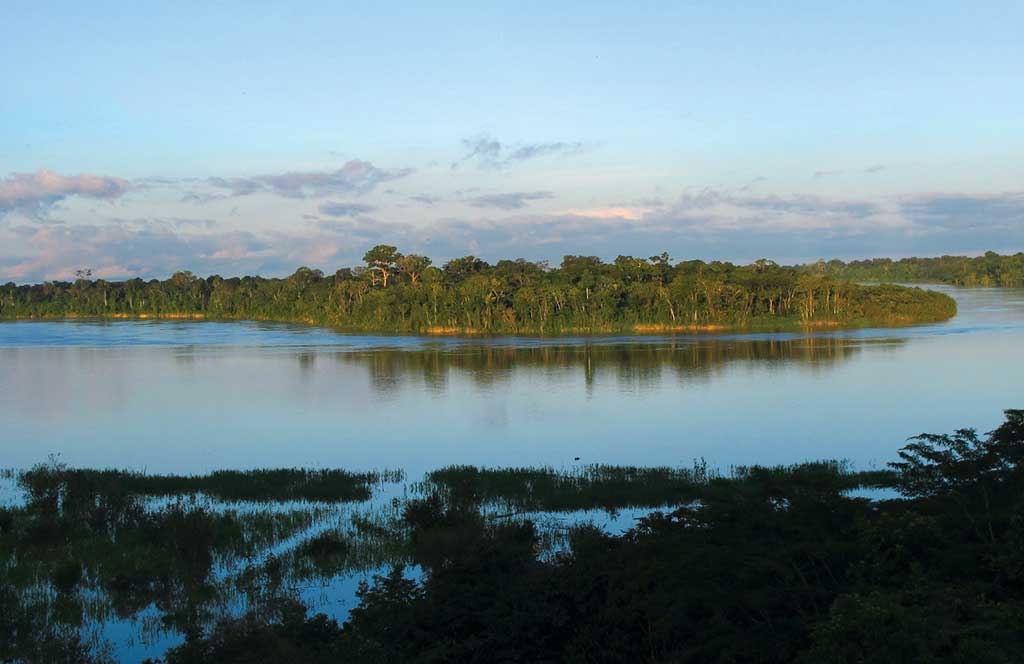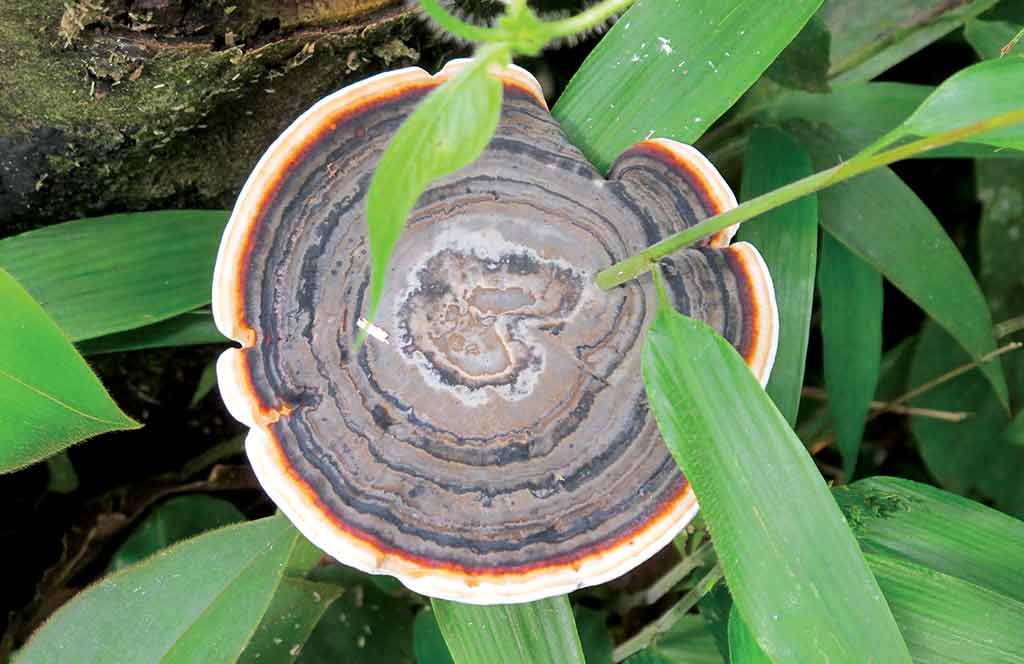The Río Yavarí (Rio Javari in Brazil) begins in Peru and serves as a border between Brazil and Peru. Its waters flow some 1,050 kilometers (650 miles) before it meets the Amazon in Brazil. About a six-hour journey from Leticia by boat (three hours when the jungle is flooded), this part of the Amazon basin is unspoiled, isolated, and is home to two excellent private natural reserves where you will be immersed in the jungle. Spend at least three days or up to a week at one of the Yavarí nature reserves (they are both excellent) to gain a real appreciation for jungle life. The longer you stay the more wildlife you are apt to see: pink dolphins, alligators, snakes, and dozens of birds. Although this region is technically in Brazil, it very well may be one of the highlights of your trip to Colombia.

View from the lookout tower at the Reserva Natural Palmari. Photo © Andrew Dier.
The reserve, first and foremost, has a strong commitment to the environment and to the community. The rooftops are made from a durable, recycled material imported from Canada. That is because of the growing scarcity of the native palm trees. Palmarí works together on sustainable agriculture and ecotourism projects as well as environmental education with local communities, and has been instrumental in the construction of schools in several villages. Mucho credit is due to gregarious Axel, the German-Colombian owner of the reserve, for being a forward-thinking eco-example.
Palmarí has a range of accommodations options, and if you are traveling in a group, this is an excellent choice. Palmarí is a favorite for Colombian school field trips, but you’ll be warned about that possibility when you make a reservation. You can sleep in a hammock, in a communal lodge, or in private rooms. Food is delicious and varied, and, yes, there is cold beer. You can also get online as well, although this might be the perfect time for an Internet diet. There are two great places at Palmarí to spend the late afternoon hours as you watch the sun go down: the lookout tower and the swing set. Although it is possible (and adventurous) to get to Palmarí on your own, they will arrange your transportation directly from Leticia.
To get to Palmari from Leticia, you can take public transportation along the river, which will require multiple transfers, or you can let Palmarí take care of everything and go direct (COP$150,000 pp one way).
In Brazil, 109 kilometers (68 miles) southeast of Leticia, the Reserva Natural Heliconia (office Cl. 13 No. 11-74, Leticia, tel. 8/592-5773, cell tel. 311/508-5666, COP$1,600,000 pp d for 4 days/3 nights incl. transportation) is a fantastic lodge and nature reserve hidden in the dense Amazonian jungle on a tributary of the Río Yavarí, which flows into the Río Amazonas. And that makes it all the more exotic, like a bird of paradise flower (for which it is named) growing in the middle of a sea of green in the jungle. Ideally, plan on spending at least three nights here, as anything less than that will feel rushed.

A colorful mushroom in the Amazonian jungle. Photo © Andrew Dier.
Activities here (included in the price except for canopying) include nature walks, bird-watching, pink dolphin-watching, canoeing above the inundated forest, fishing, and canopying. You’ll usually have two outings each day, and sometimes in the evenings you can explore the jungle at night, panning the darkness with your flashlight as you look for red eyes of jungle beasts looking back at you. It’s an unsettling feeling to be immersed in the pitch black jungle against a backdrop of chirping insects, frogs, and birds. Another nocturnal activity is to take a canoe ride in search of alligators (or, if there are no gators, simply enjoying the sounds of the jungle and the millions of stars above).
The comfortable cabins at this reserve are made of all natural materials. Cabins come in different sizes, such as for two guests or families, and they have an area for larger groups. At night you don’t even realize there are others around, such is the privacy.
A hospitable local Brazilian family takes care of all the day-to-day details. There’s no Internet access or cell phone coverage, and electricity comes on only for a few hours in the evening. Meals are taken in an open-air thatched roof maloca in the center. Food is basic and does not vary much, usually fried fish, rice, and plantains. The friendly kitchen staff can, however, accommodate vegetarians if provided with some advance notice.
Excerpted from the First Edition of Moon Colombia.